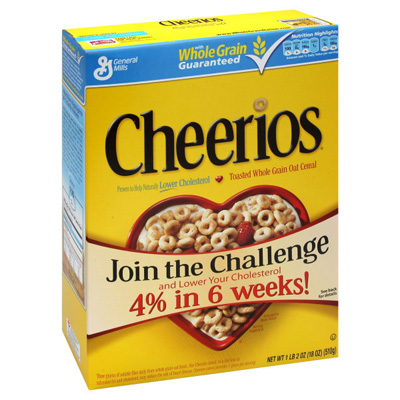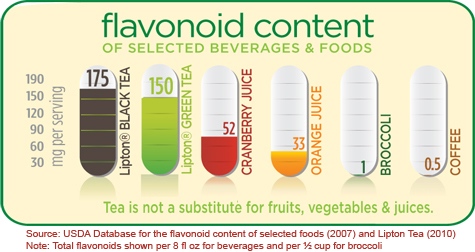
Best Reader Tips of 2021
This year reader tips led to dozens of ad alerts, as well as a complaint to regulators.
“Contains antioxidants”
“Clinically Proven to Enhance Immune System”
“Balances Digestive Health”
Who wouldn’t want to eat their way to better health? Ads and labels for food and beverage products today are chock-full of questionable and sometimes unsubstantiated health claims that promise drug-like benefits. Of course, we’re not talking about foods like fruits and vegetables – collard greens don’t exactly have a big marketing budget. More often than not, the companies spending millions on advertising health and nutrition benefits are selling fortified, a.k.a. “functional,” processed foods. According to a PriceWaterhouseCoopers report cited by the Washington Post, the A food to which a new ingredient has been added in order to give the food an additional function (usually a health-related function. industry makes $20-$30 billion in sales a year, and is expected to grow at a rate 8 to 20 times faster than the rest of the food industry.
FDA regulations state that food cannot be advertised to “diagnose, treat, cure or prevent” a disease. However, companies are allowed to make some claims about health (i.e., “green tea may reduce the risk of breast or prostrate cancer”), nutrition (i.e., “high fiber” or “low fat”), and structure/function (i.e., “calcium builds strong bones”) as long as they have evidence to back it up. But the rules are convoluted. While government agencies, including the FDA, the FTC, and the USDA, do try to step in to stop false and misleading food advertising, their efforts are unfortunately after the fact (i.e., after the misleading ads have run). Too little too late for the consumers who already bought into the deception.
A few companies that have been subject to government scrutiny for their use of misleading health claims include:
1. General Mills for Cheerios Toasted Whole Grain Oat Cereal
In 2009, the FDA sent a warning letter to cereal maker, General Mills, for claiming that Cheerios Toasted Whole Grain Oat Cereal can “Lower Your Cholesterol 4% in 6 weeks” and that clinical studies “showed that eating two 1 1/2 cup servings daily of Cheerios cereal reduced bad cholesterol.” The FDA found the health claims made on the cereal’s label and on the product’s website put Cheerios into the drug category, and asked General Mills to file a new drug application if the company wanted to continue using this language when advertising the product (meaning that you would need a prescription from your doctor to buy a box.) In May, 2012, the FDA advised the company about changes in the wording of the claims that would meet regulations that had to be included in the label.

2. Unilever for Lipton Tea
Unilever got a slap on the wrist from the FDA in 2010 for making health and nutrient claims regarding its Lipton Green Tea products. The product’s webpage stated that the “tea is a naturally rich source of antioxidants” and “packed with protective FLAVONOID ANTIOXIDANTS.” Both statements were found to violate regulations regarding nutrient content claims. In addition, the tea was advertised to lower cholesterol (based on one study in which participants drank 8 cups a day for 12 weeks). And the company went so far as to compare the nutritional value of Lipton tea to broccoli.

3. The Dannon Company for Activia and DanActive Yogurts
In 2010, the Dannon Company settled charges with the FTC regarding ads touting the health benefits of two of its yogurt products. The yogurt that will treat any and all digestive problems; Jamie Lee Curtis’ favorite snack – she loved Activia so much she traded her credibility for it., promoted by Jaime Lee Curtis, was supposedly “clinically proven to help regulate your digestive system in two weeks,” while DanActive was advertised to be an immune booster that was “clinically proven to help strengthen your body’s defenses.” Both claims were found to be false and misleading and Dannon agreed to pay $21 million and stop making inflated health claims.
This year reader tips led to dozens of ad alerts, as well as a complaint to regulators.
Lawsuits allege brownie brands and others lack the essential dairy ingredients to call their products fudge.
Lawsuits against Kraft and Annie’s mac and cheese allege brands fail to disclose harmful chemical ingredients.

